
Features | Lists
By The Staff
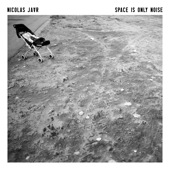
40 :: Nicolas Jaar
Space is Only Noise
(Circus Company)
Andrew Hall made a perfect observation in his review of Space is Only Noise: that, largely speaking, the structure of each individual track on this record is “hummable, but the idea of the song itself can never be communicated through voice alone.” Nicholas Jaar consistently defies the attributes typical of an accessible pop record, his melodies either swallowed up by repetition or subverted to new purpose. Vocal samples pitch-shift to become bass lines; restless instruments begin to battle against one another for dominance; and, gradually, previously melodic passages are altered beyond recognition. Jaar revels in negative space and meditation; his work a rejection of the dance music blueprint, the fabric ripped up and woven into an entirely different tapestry. Space is Only Noise is an album of pop music for listeners to digest in solitude; house music only for those who insist on dancing with their eyes resolutely glued to the ground.
These facets manifest themselves in curious ways. “Variations,” for example, deploys guitar sounds as both a mechanical, rhythmic foundation and the lead hook; elsewhere, something makes me feel like the beat for “Problems With the Sun” has a sufficient amount of R&B slinkiness to wind up as the backing track for the next “This is Why I’m Hot.” But Jaar is confident here, and his aesthetic inclinations are emblematic of the blurred and still blurring boundaries of pop and dance music. Halfway through “Too Many Kids Finding Rain in the Dust” a hollow voice offers to “take you downtown, and show you around.” In Jaar’s hands, that “downtown” is always changing, and club music’s most recognizable features are being steadily eroded by unpreventable entropic progress. Space is Only Noise is a wonderful example of what happens if we don’t resist.
Matt Main
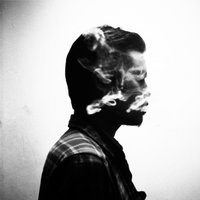
39 :: Dirty Beaches
Badlands
(Zoo Music)
The spirit of the romantic wanderer has possessed Alex Zhang Hungtai. It’s a welcome curse, too, as every era has need of its own hosts for the heartsick traveler’s phantasm/character. These ghosts float through the years, sprinkling memories over the North American wasteland of a distant, beautiful loneliness: bits and remnants of Lee Hazlewood, Johnny Cash, Scott Walker, and Leonard Cohen; a bitter fairy dust that simultaneously hardens the visage and softens the heart. It’s become critical to the definition of any would-be musical era to know exactly who carries the torch, to know what they preserve and what they transform in the canon of this timeless character’s image, and Dirty Beaches had it all in check this year. With brooding animal magnetism and personality to spare.
Though he effortlessly fits the desert vagabond image, Zhang waves experimental fearlessness above his head like a drunk cowboy would with a loaded pistol. He’s unbound by the technical strictures of the musical legacy he invokes yet deeply invested in the mysterious, intangible aspects of its attitude, able to apply them skillfully to many modern forms: cracked blues, noisy garage-rock, antiquarian piano dirges, or electrifying vocal freakouts. The list multiplies seemingly at Alex’s whim, but the point is that it all not only fits into his box of choice, it adds new dimensions to and keeps the legacy of one of music’s most well-known characters alive and evolving. Badlands‘ Françoise Hardy-sampling “Lord Knows Best,” which fits Zhang’s ultra-baritone against a charming and invasively catchy honky-tonk piano line, was my most listened-to track this year. It’s simple and full of bare emotion; it just, in other words, puts you in the mood. In that song I feel like a character myself, and whatever I’m doing becomes self-consciously cinematic as hell for three glorious minutes.
It’s certainly not the strength of all music to detach the listener in such a fashion, but in Dirty Beaches’ context, it can only be considered a successful exorcism begging to be put on repeat. Admittedly taking cues from directors like Wong Kar-wai and David Lynch—some of the other notable artists well-known to successfully translate the same images of nomadism and hard-nosed romanticism into modern forms rather than just seeking a needless yesteryear authenticity—Dirty Beaches made these things new to grand effect in 2011. The spirit lives.
P.M. Goerner
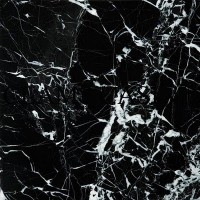
38 :: Clams Casino
Instrumental Mixtape
(Self-released)
Before 2011, if asked to connect a line between Soulja Boy and Massachusetts-based Type, a record label whose best-known artists include drone-folk star Grouper, the prolific Yellow Swans, and Efterklang’s Peter Broderick, not to mention cellist Richard Skelton and Deaf Center, I would have been hard-pressed to find a way to do it. Yet 2011 gave Clams Casino, a New Jersey producer who ‘til that point had spent his time sending tracks to countless Myspace rappers, his break, and Type offered him a home worlds removed from swag-rap or the comically aggressive self-promotion of artists like Lil B, one of Clams’ earliest supporters.
The craziest part, however, is that even a cursory listen to his Instrumental Mixtape reveals production that successfully bridges the seemingly enormous aesthetic gap between aspiring rappers and the work of established noise and drone artists. Even more impressive, these pieces don’t need Based God, or Soulja Boy, or the Glow-approved Main Attrakionz in order to leave a deep impression. His beats find common ground between Burial’s melancholy sketches of the city at night, new age synths, The-Dream’s maximalist pleasure music, and mix-obliterating boom-bap, all while maintaining an attention to detail that makes even a simple arrangement sound labored over in the best way possible.
This is Clams’ real coup: allowing his work to exist in two almost entirely different spheres simultaneously. His songs function dually as mood pieces and as foils for technically proficient young rappers who are openly defiant of hip-hop convention. Now that he’s doing major work for A$AP Rocky and other industry upstarts, one can only hope that he continues to find the time to deliver alternate-universe treatments like this.
Andrew Hall
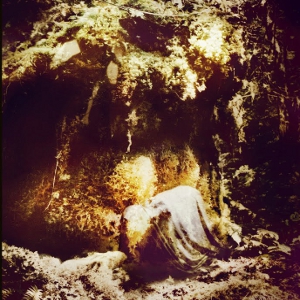
37 :: Wolves in the Throne Room
Celestial Lineage
(Southern Lord)
Heavy metal is both burdened and sustained by a very loyal, and traditional, fan base. The demands of these fans are no more idiosyncratic and involved than any scene, but the extremity and fastidiousness with which those demands are made seems unique. Little surprise, perhaps, that those who find the intensity of black metal enjoyable would employ selfsame intensity to their enjoyment of black metal. All of which leaves Wolves in the Throne Room at an interesting intersection of two incompatible cultures: the traditional, static, heavily technical culture of metal, and the (likes-to-think-of-itself-as) radically peripatetic style of indie music. In other words, it’s easy to think of Wolves in the Throne Room as a band that makes metal for people who aren’t that into metal.
Like me. I’m not that into it, at least beyond the odd, fond recollection for Master of Puppets (1986) that has some readers out there rolling their eyes right this second. But the very niche-ness that defines metal is a declining trend in the hop-scotch world of music’s unending variety. Had Celestial Lineage come out in, say, 1996, it might have been relegated to the peripheries of metal, and the peripheries-within-peripheries of non-traditional metal at that. But in 2011, it has all of the impact of a metal album—a diverse, melodic, epic, beautifully performed metal album—dropping like a bomb on the comfortable landscapes of trenchant music listeners. This is the world in which Sunn O))), Boris, Leviathan, Isis (whose singer appears here), and Mastodon have found some degree of crossover traction, and in that world it’s only natural that Wolves in the Throne Room would share those fans. But where those other bands can sometimes seem one of the necessarily two-sided niche/traditional metal coin—pushing away either because of a caustic aesthetic or a confrontational pose—Wolves’ Celestial Lineage seemed to simply…appear. Naturally, organically, as if from the combinatory ether. Besides also being a black metal album, Celestial Lineage is beautiful the way we recognize a lot of accessible post-rock to be beautiful.
The metal themes are still here, the trilogy story-arcs and brooding imagery. This must feel totally incredible to play Skyrim to. But it’s the synths, the emphasis on atmosphere over on-a-dime arrangements, the inexorable and cyclical building, that make Celestial Lineage feel like an album that unfolds, inspires, and appeals to those of us used to music that soaks up genre elements like a sponge. It’s combinatory in the way that great cross-cultural albums tend to be. This alone might have a few purists disqualifying Celestial Lineage from inclusion in the annals of great metal. For the rest of us, listening to it can open worlds that once seemed impenetrable.
Conrad Amenta

36 :: Eleanor Friedberger
Last Summer
(Merge)
This year, Eleanor Friedberger managed to break free from her past—from, especially, her uneven career in the Fiery Furnaces—by telling a whole lot of stories about it, breathlessly cataloging places, people, and moments, crystallizing them in time for this, her first solo outing. Last Summer‘s highlights, like “My Mistakes,” “Roosevelt Island,” and “Scenes From Bensonhurst,” showcase a surprisingly Fleetwood Mac-ish sound complimented by Friedberger’s crisp, elegant vocals. Mainly, though, Last Summeris a record brimming over with words—sometimes crackling in sync with taut ’70s rhythms, sometimes falling outside the lines. The results are often funny, like in “Inn of the Seventh Ray” (“Watch Footloose with the biggest bottle of vodka in the world”) or poignant (the aforementioned “Roosevelt Island”: “That day was supposed to be like spring break / But it was dark and cool / And the sand belts are dirty and gritty / Under our shoes”), all stemming from her unimpeachable attention to detail. While Last Summer may seem initially ambitious in its complex song structures and sheer verbosity, Friedberger’s ultimate intent is truly small-scale, focusing on the simple and personal. It’s her strength, as a solo artist, to cut through all that obtuse indie bullshit and make a record like a voyeuristic document of real life, all of its embarrassing minutiae spinning freely from her at its core. New York is a town endlessly mined for material, yet Friedberger manages to make it feel at once smaller and more exotic, a labyrinth of trains, trams, sidewalks, and carnival rides all powerfully haunted by the same longing, the same lost loves and old friends.
Maura McAndrew
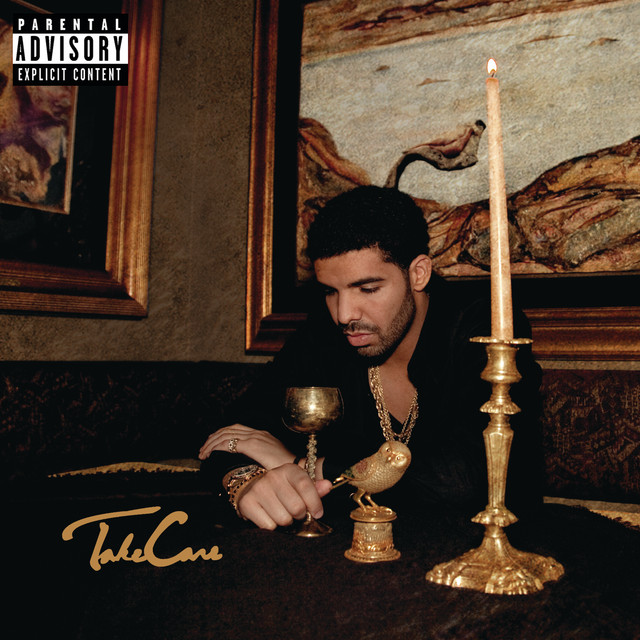
35 :: Drake
Take Care
(Young Money)
My wife and I recently took a vacation in South Florida. The rental car didn’t have an iPod adapter, so we listened to terrestrial pop radio the entire time, and eventually learned something important: every song on the radio features Drake. Every single one. It’s impressive enough that radio programmers are willing to give repeated plays to his down-tempo, drunk dial anthem “Marvin’s Room,” but then there’s the 30-something other songs bruised with his guest verses, from Wayne to J. Cole to Nicki Minaj; my wife listened to Take Care three times before she came to the sad realization “the one where Lil Wayne goes ‘skeet skeet skeet’ isn’t on there!” (Nor is “The Motto.”) A Canadian musician hasn’t had his finger on the pulse of American radio like this since Our Lady Peace let Bob Rock produce one of their records.
I believe it’s because few hip-hop artists are so intent on being everything to everyone the way Drizzy is. His backers call it “versatility”; haters call him a pandering softie, jack of all trades, master of none. Where everyone agrees: the man’s range is impressive. Want poppy club bangers ideal for cruising down South Beach? “Headlines” and “Make Me Proud” (despite bearing maybe the worst Nicki Minaj guest verse ever) have got your back. Soulful grasping at hipster credibility? There’s a Weeknd track featured prominently, glistening with Abel Tesfaye’s signature woo-ing, as well as a Jamie xx remix of a Gil Scott-Heron song sampled liberally. Guest spots from more traditionally skilled rappers to make Drake seem equally hard? Not to mention the sheer length of this thing—78 minutes and 18 tracks, no mind paid to the hits/skits formula most MCs not named Clipse use to unnecessarily pad their records. It’s all meticulously arranged for flow and variety, with certain incarnations of Drake often surfacing in three song chunks. You know he tore his hair out over this shit. Drake sequences his albums like Yo La Tengo do.
So it’s your own damn fault if you try to listen to it all in one sitting, as well as if you bother listening to any of the three wasteful tracks after “Look What You’ve Done,” which would have (and should have) made an ideal closer. But if you can get past any ingrained prejudices about 80 minute rap records and incessant whining about the perils of fame, Take Care‘s pleasant confidence, aided in no small part by Noah “40” Shebib’s minimalist production, is a deftly handled talent, perhaps the record’s greatest strength, more attuned to massaging the temples than tearing up the club (wisely left to Just Blaze on monstrous Rawse track “Lord Knows”). Treat it like background music—put it on without having to think about it too much and appreciate the craftsmanship within—or just treat it like a big grab bag: put the pop numbers on a mixtape, fast forward to the Andre 3000 verse where he quotes Adele, or try to convince your friends that Drake has actually dramatically improved as a rapper by focusing on the pointedly harder run from “Underground Kings” through “Lord Knows.” The possibilities are endless, and so is the run time, but in general the man’s done a good thing here: he’s shown us, without a doubt, that he cares.
David M. Goldstein
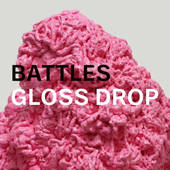
34 :: Battles
Gloss Drop
(Warp)
Battles might just be good enough to recover, a little, from having been robbed of their powerhouse status. The departure of integral member and occasional vocalist Tyondai Braxton both forced the band to seek out guest-singers—always a risky approach with patchy returns—and saw the disappearance of most of the tortured keys and demanding dynamics in which Braxton specializes. His departure might have been enough to hobble them, or at the very least reduced what had been a formula for real character to rote math-rock of the insanely technical but not terribly inspired variety. So kudos to Battles for not only writing with what sounds like the same old confidence that comes from being freakishly skilled, but making sure to preserve the same quirk and challenge which enamored Mirrored (2007) fans.
What keeps Gloss Drop from the same stratospheric heights as their debut (and, five years on, Mirrored has aged extremely well) is that it might be one of the most front-loaded albums of the year. “Africastle,” the skittish “Ice Cream” with Matias Aguayo, the inhumanly precise “Futura,” and the Nintendo soundtrack emulation of “Inchworm” and “Wall Street” are each, at their best, formalist wonders of variety and skill. John Stanier still plays straightforward beats with an inimitable power, and the array of sounds produced by the multi-tasking three-piece can be overwhelming. The album seems on a peripatetic search for a new identity in places, especially as it cycles through its latter-third, but that front half is almost endlessly listenable, and the latter half hints at a totally sustainable exploration.
Given the album was largely re-written in a four month period following Braxton’s exit, and that “Ice Cream” sort of sounds like 311, there’s a lingering sense with Gloss Drop that, while more playful, and freer to explore Battles’ newly-minimized confines, it might be a lesser version of what had been planned. That it remains year-end material on most lists says something important about Battles, who just might become a permanent fixture in the genre.
Conrad Amenta

33 :: EMA
Past Life Martyred Saints
(Souterrain Transmissions)
There are very few humans who can distill the experience of being 20-something and even fewer 20-somethings who can distill the experience of being human like Erika M. Anderson can. The fact that the cover of Past Life Martyred Saints depicts Anderson haloed like a Byzantine Madonna is appropriate; the fact that she holds her fingers like a lackadaisically pointed gun—shooting off into god knows where—even moreso.
Many of the songs on EMA’s debut solo album deal with the notion of an oppressive past in no uncertain terms. “Breakfast,” “The Grey Ship,” and “California” all address mothers, grandmothers, and great grandmothers and the burden they impose by almost seeming to demand unhappiness based on precedent. In “Anteroom,” Anderson chants in singsong, “I will get exactly what’s coming to me,” and it’s this overwhelming belief in the principle of entelechy that serves as the central theme of her outpourings. She is damned to repeat the past, and she fires off nine searing tracks about that—with little regard for human life.
What seems more prescient than precedented, though, is how the album manages to address the concept of emerging adulthood. It’s almost uncanny how much “California,” the spoken-word standout track, sounds like a millennial version of “Howl.” Rather than addressing the best minds of her generation, though, EMA manages to forge a window into merely her own. Remember “What Is It About 20-Somethings?,” the New York Times Magazine article that went viral last August? If that piece had a soundtrack, this would be it.
It’s a heavy album. Like, heavy to the extent that I can’t fathom listening to it in the presence of another person. Which is not to imply it’s generically sad—it could be that Anderson’s particular brand of drone provides few of the comforts accompanying traditional songcraft. Or, it could be that cuts like “Flower,” “Breakfast,” and “Butterfly Knife” all resemble demented nursery rhymes which would be terrifying if they weren’t so breathtaking in their construction.
Anderson says that failure tastes “like dirt,” but if Past Life Martyred Saints is what failure sounds like, then dirt doesn’t seem too unappetizing. Sure, Past Life touches on subjects like drug abuse and failed relationships—you know, touchstones for any cathartic album—but there’s an unorthodoxy to her cracked wisdom that surpasses the prototypical subject matter. In the Year of Our Lord, Chillwave-11, the fact that an artist chooses to focus almost exclusively on lyrical content rather than “feel” is jarring. Actually, it’s exhilarating. Actually, more importantly, listening to this fallen saint’s confessions—so simultaneously personal and universal—is even transcendent.
Allie Conti

32 :: Nurses
Dracula
(Dead Oceans)
The reductive idea that pop music is easy to make has thankfully largely disappeared as an argued fact, excepting those sad encounters with folks whose entire record collection consists of Bob Dylan, Neil Young, Bob Marley, and Dave Matthews, but I think sometimes we’re still deceived by a latent version of that idea as a cultural thing. Because I want to say why I enjoy Dracula, which regular readers will know is really not in my wheelhouse, but when I write the reasons out on paper they all seem tantamount to feint praise: “it’s fun to listen to.” “It’s not taxing.” “The songs are leisurely and relaxing.” “The production isn’t astonishing, but the arrangements are consistently interesting.” Those comments make it sound like a marshmallow, right?
But why? Because it is actually pretty rare to achieve what Nurses have achieved here: what makes Dracula so good is that the band has forged such consistent synergy between strong melody and vibe and that sense of ebullience plays out over the course of this entire album. This is joyful music, I mean, but also purposeful: the band sounds at ease with the noise they’re making; they aren’t posturing, or calculated, or working hard. They’re just making their natural sound. To make that point better, I think the Nurse’s Venn diagram of musical influences probably seems superficially similar to that of junk rock magnates Foster the People, but the latter band has only managed to make one half-decent pop song, which is now so over saturated in the world that my gag reflex sputters every time I hear it. What’s worse is that Foster the People look and sound like jerks while singing a song about school assassinations, which…gross. But even if Dracula may share parts of the same orbit, “Pumped up Kicks” is a steaming hunk of meteor that has burrowed into the ground, more shocking than complex and hard to figure out. Dracula may be a marshmallow, but it’s a delicious one: astonishing precisely because it is so consistent, and because it makes the difficulty of composing strong pop songs sound so effortless.
Mark Abraham

31 :: Real Estate
Days
(Domino)
When they emerged in 2009, Real Estate didn’t appear to be career artists. They were a New Jersey guitar band slowly releasing songs on their own terms only a few degrees removed, especially thanks to guitarist Matt Mondanile’s work as Ducktails, from chillwave (which descended into self-parody and burned out as quickly as it surfaced), with fairly simple, spaced-out tunes about beaches and drinking. When their fine self-titled debut effectively compiled their already-released output and tacked a few new tracks on toward the end, it seemed like their chances of producing something truly revelatory were fairly low.
Not that Days is necessarily a revelation, or even a major shift in what Real Estate does. However, it’s the rare second album where mere refinement produces something so superior to its predecessor that it’s kind of astounding. Where their songs once tended to drift they’re now remarkably focused; the haze that surrounded their debut is repurposed to create a collection of songs both more cohesive and ambiguous, with singer/guitarist Martin Courtney now a far stronger presence. Lead single “It’s Real” demonstrates this almost immediately, as the entire band suddenly plays with an urgency never before heard in their music, as if Courtney can only prove his love by shaking off the leisurely tempos and relatively laid-back rhythms that drive so many of their songs.
Better yet, Real Estate has also learned to draw out more than one feeling from their self-induced stasis, giving their songs actual pull where they once merely had hooks. New drummer Jackson Pollis helps to make the Alex Bleecker-penned (and sung) “Wonder Years” move along effortlessly, making clear that the well-worn, nostalgic sound that they’re frequently described as having isn’t entirely chill; the band draws out the sense of frustration hidden in Bleecker’s chorus of “I’m not yours, and you’re not mine / and I’m not okay, but I guess I’m doing fine,” before Mondanile tears into a gorgeous, phaser-heavy solo straight off of one of his Ducktails tapes. Like when Courtney later sings of how “clearly there is something wrong” if it takes him all summer to finish one song on “Younger Than Yesterday,” this music benefits from its prioritizing of songs over jams, something that didn’t seem to be the case on Real Estate.
Though it’s musically warm, Real Estate has crafted a record that survives the potential burnout of summer rotation, its songs as approachable—and resonant—in December fog as it was when it was still nice out, Courtney’s narratives of walking on decomposing leaves fast approaching Dean Wareham’s while taking Galaxie 500 as an influence in an entirely different direction. And for a guitar band from New Jersey whose first song I ever heard sported one line—“Budweiser, Sprite, do you feel alright?”—and enough detail to make it hard to tell whether or not the repetition was trying to tell me something, that’s more than enough.





